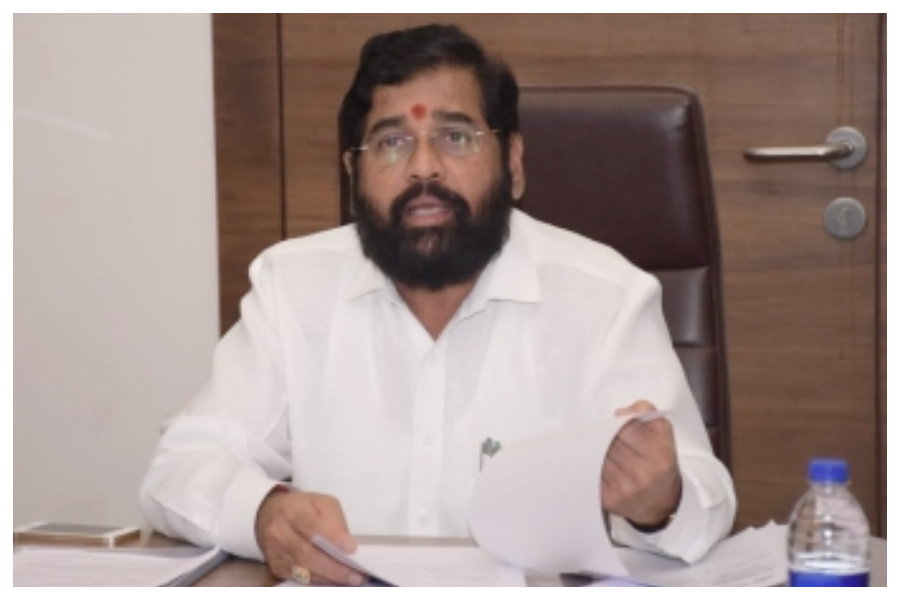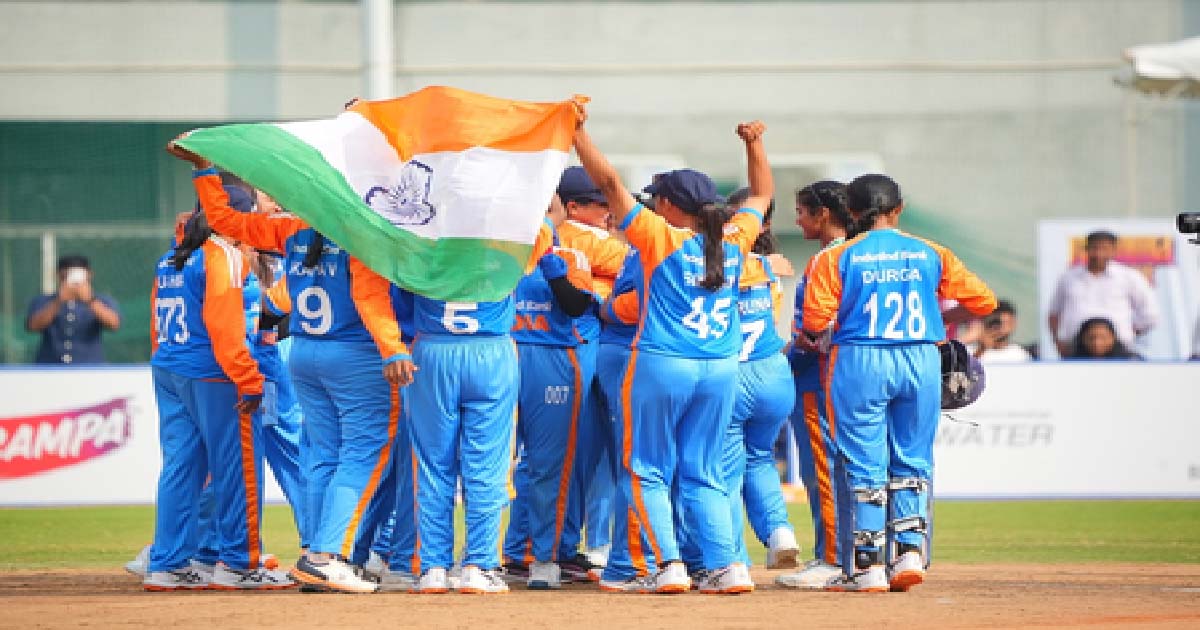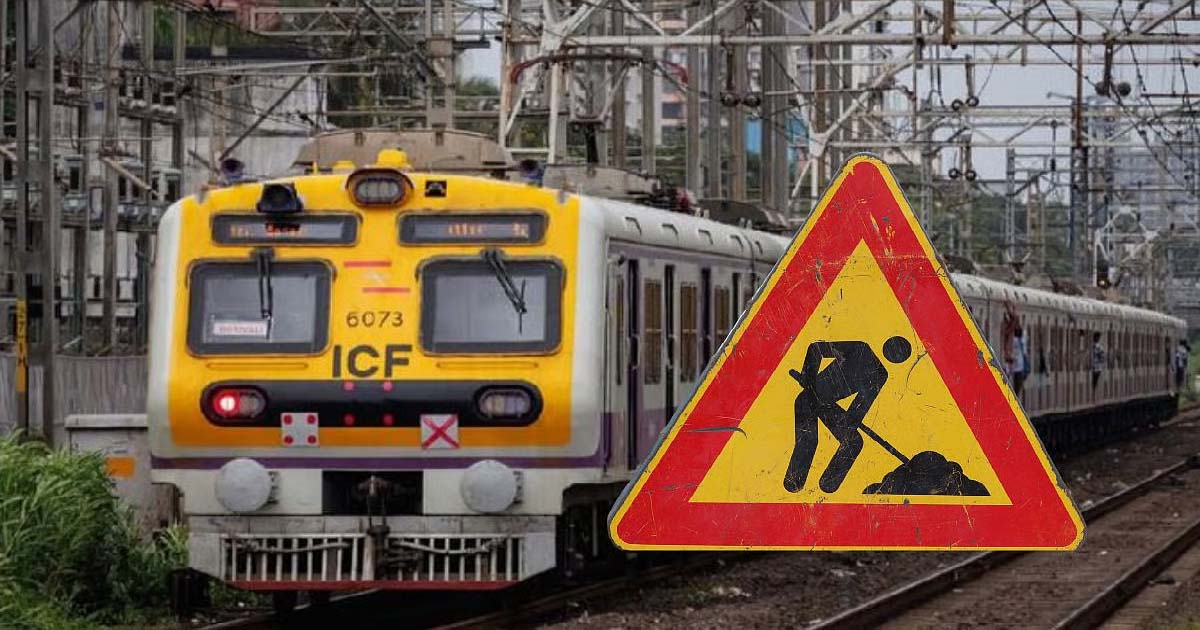National News
Intra-party dispute, not falling within the scope of defection: Shinde cou+nsel to Supreme Court

Chief Minister Eknath Shinde’s counsel on Wednesday told the Supreme Court that there is no split in the political party rather, there is a dispute over its leadership, which can be said to be an “intra-party” dispute, not falling within the scope of defection. Shinde’s counsel added, “no two Shiv Senas, two groups in a political party…”
A bench headed by Chief Justice N.V. Ramana and comprising Justices Krishna Murari and Hima Kohli was hearing petitions filed by the Shiv Sena and its rebel MLAs on constitutional issues of splits, merger, defection, and disqualification.
After hearing arguments, the top court asked Shinde’s counsel to redraft the submissions on petitions filed by the Uddhav Thackeray faction on constitutional issues, which arise out of the political crisis in Maharashtra.
Senior advocate Kapil Sibal, representing the Thackeray faction, said the rebel MLAs, Shinde’s faction, can save themselves from disqualification under the tenth schedule of the Constitution only by merging the splinter group with another party, otherwise there is no defence for them. He added that the rebel group violated the chief whip, and they are disqualified as per the tenth schedule.
Senior advocate Harish Salve, representing Eknath Shinde, said there can be a dissenting member in the political party and there has to be democracy within the party. He said, “No two Shiv Senas, two groups in a political party…”
Salve argued that there is no split in the party, instead there is a dispute over its leadership, which can be termed an “intra-party” dispute, not falling within the scope of defection. He said the anti-defection law will apply only to those who have given up the membership of a political party, and his client has not given up the original membership of the party.
Salve said anti-defection law is not a weapon for leaders to lock up members after losing the majority.
He added that if there are a larger number of MLAs who are not satisfied with the way the chief minister is functioning and want a change, why can’t they say there should be a fresh leadership contest? And, changing CM is not anti-party, rather intra-party.
Chief Justice queried Salve, can you form a new party saying the leader did not meet you? Salve replied, “I am within the party…I am the dissenting member within the party,” and also cited the split in Congress in 1969.
The Chief Justice further queried Salve, “What is the purpose of you approaching the ECI (Election Commission of India)?” Salve said after Thackeray resigned there were political developments and municipal elections were near, and who should get the symbol?
Salve added that it is not the case that the MLAs have voluntarily given up their party’s membership. “Not a case of defection… Today it is the case of intra-party rebellion and nobody has given voluntary membership from the party,” he submitted.
The top court, asking Salve to redraft the questions of law, scheduled the matter for further hearing on Thursday.
Crime
Kerala teacher sentenced to life imprisonment in POCSO case

Kannur, Nov 15: In the case involving the sexual assault of a Class 4 girl at Palathayi in Kerala’s Kannur, former Bharatiya Janata Party (BJP) leader and teacher K. Padmarajan, on Saturday, has been sentenced to life imprisonment along with fines.
He has also been awarded 40 years of imprisonment under POCSO charges.
The sentence was delivered by the Thalassery Fast-Track POCSO Court.
The court had found Padmarajan guilty on Friday.
The offences proved against him carry punishments ranging from a maximum of 20 years to life imprisonment.
The case had triggered political controversy because the investigation team was changed five times and the interim charge sheet did not include POCSO sections.
Charges against the accused included Section 376AB (rape), and offences under the POCSO Act.
Padmarajan was found guilty of sexually assaulting a 10-year-old girl inside and outside her school at Palathayi in Kannur, on three occasions between January and February 2020.
The complaint against the teacher was handed over to the Thalassery Deputy Superintendent of Police by the Panoor Police.
The initial police investigation had concluded that the complaint was false.
However, there was strong public protest over the failure to act against the accused.
On April 15, 2020, Padmarajan was arrested from a relative’s house where he had been hiding.
The investigation was later transferred to the Crime Branch.
Without including POCSO charges, the Crime Branch filed a charge sheet just hours before the 90-day deadline expired.
After five different investigation teams handled the case, the final charge sheet was submitted in May 2021.
In February 2024, the trial began, and the Thalassery POCSO Court ultimately found the accused guilty.
The prosecution had said on Friday that the survivor received justice on Children’s Day (November 14) and that the accused deserved the maximum punishment.
Before sentencing, the prosecution again urged the court on Saturday to impose the harshest possible penalty.
The defence said that the case was politically motivated.
Padmarajan pleaded for leniency, saying he had a family consisting of his wife, children and mother.
The court responded that it had examined only the merits of the case.
Meanwhile, senior CPI-M leader and former legislator M.V. Jayarajan hailed the court judgment and said there was nothing political in the order.
National News
India storm into semis of 2025 Women’s T20 World Cup for the Blind

Bengaluru, Nov 15: India advanced to the semi-finals of the Cricket for the Blind 2025 Women’s T20 World Cup with a commanding ten-wicket win over the USA.
In only their sixth match of the tournament, India secured their fourth consecutive win, defeating the USA by ten wickets in a contest that was as symbolic as it was one-sided.
For the USA Women’s Blind Cricket Team, this was a remarkable occasion. As they made their World Cup debut, the team was assembled from scratch over the past year, shaped through an unprecedented developmental partnership with Indian institutions that identified, trained, and nurtured visually impaired cricketers across the United States.
Opting to bat first, USA fought hard but were limited to 60/8 in 20 overs, owing to India’s disciplined bowling and sharp fielding. Tatyana (17 off 41, B2) and Caroline (12 off 26, B2) demonstrated resilience against a relentless attack, but wickets kept falling as India’s bowlers kept tight lines and created pressure throughout.
Simranjeet Kour (B2), Sunita Srathe (B2), Simu Das (B1), and Ganga Kadam (B3) each picked up a wicket, while India’s fielders contributed with multiple run-outs — a testament to their coordination across all categories.
What followed was an extraordinary display of batting authority. Chasing just 61, India romped home in 3.3 overs without losing a wicket. Player of the Match Simranjeet Kour blasted an unbeaten 31 off 12 balls (B2), while Kavya N.R (B3) complemented her with a swift 21 off 12*, sealing the match in minutes. The gulf in experience showed, yet the spirit displayed by the young USA side reflected the courage and commitment fueling their rise on the global stage.
India now turn their attention to what promises to be one of the marquee fixtures of the tournament: a high-voltage showdown against arch-rivals Pakistan on Sunday in Colombo.
National News
Mumbai Local Train Update: Megablock On Central, Harbour, Trans-Harbour & Western Railway Lines On Nov 16; Check Details

Mumbai: Mumbai suburban railway commuters will face major travel disruptions on Sunday, 16 November 2025, as Central, Harbour, Trans-Harbour and Western Railway authorities have planned extensive maintenance work, resulting in a major megablock across multiple corridors.
The block has been scheduled for several hours during the day and will affect both Up and Down services with diversions, cancellations, and restricted operational stretches. Passengers have been urged to plan their journeys in advance and expect changes in train timings, halts and routes.
On the Central Line, the megablock will be enforced between CSMT Mumbai and Vidyavihar on the Up and Down slow tracks between 10.55 am and 3.55 pm. Down slow locals departing CSMT between 10:48 hrs and 15:45 hrs will be diverted via the fast line up to Vidyavihar while halting at limited stations, Byculla, Parel, Dadar, Matunga, Sion and Kurla, before switching back to the slow track. Similarly, Up slow services leaving Ghatkopar between 10:19 hrs and 15:52 hrs will run on the fast line until CSMT and halt at Kurla, Sion, Matunga, Dadar, Parel and Byculla.
On the Harbour Line, services between Vashi and Panvel will remain affected from 11.05 am to 4.05 pm. During this period, Up trains from Panvel to CSMT between 10:33 hrs and 15:49 hrs, and Down trains from CSMT to Belapur/Panvel between 09:45 hrs and 15:12 hrs, will remain cancelled. To ease passenger movement, special trains will operate between CSMT and Vashi during the block.
The Trans-Harbour Line will also face restrictions between 11.05 am and 4.05 pm, and services will run only between Thane and Vashi/Nerul. Up trains from Panvel to Thane between 11:02 hrs and 15:53 hrs, and Down trains from Thane to Panvel between 10:01 hrs and 15:20 hrs, will remain suspended. The Uran Line will function normally and will not be affected by the block.
Meanwhile, the Western Railway will operate a five-hour Jumbo Block between 10.00 am and 3.00 pm on the fast track between Ram Mandir, Borivali and Goregaon. Up fast services will shift to slow lines between Borivali and Andheri, while Down fast trains will run via slow tracks between Andheri and Goregaon.
Passengers have been advised to follow announcements, use real-time railway apps and consider alternate travel arrangements to avoid inconvenience.
-

 Crime3 years ago
Crime3 years agoClass 10 student jumps to death in Jaipur
-

 Maharashtra1 year ago
Maharashtra1 year agoMumbai Local Train Update: Central Railway’s New Timetable Comes Into Effect; Check Full List Of Revised Timings & Stations
-

 Maharashtra1 year ago
Maharashtra1 year agoMumbai To Go Toll-Free Tonight! Maharashtra Govt Announces Complete Toll Waiver For Light Motor Vehicles At All 5 Entry Points Of City
-

 Maharashtra1 year ago
Maharashtra1 year agoFalse photo of Imtiaz Jaleel’s rally, exposing the fooling conspiracy
-

 National News1 year ago
National News1 year agoMinistry of Railways rolls out Special Drive 4.0 with focus on digitisation, cleanliness, inclusiveness and grievance redressal
-

 Maharashtra1 year ago
Maharashtra1 year agoMaharashtra Elections 2024: Mumbai Metro & BEST Services Extended Till Midnight On Voting Day
-

 National News1 year ago
National News1 year agoJ&K: 4 Jawans Killed, 28 Injured After Bus Carrying BSF Personnel For Poll Duty Falls Into Gorge In Budgam; Terrifying Visuals Surface
-

 Crime1 year ago
Crime1 year agoBaba Siddique Murder: Mumbai Police Unable To Get Lawrence Bishnoi Custody Due To Home Ministry Order, Says Report












